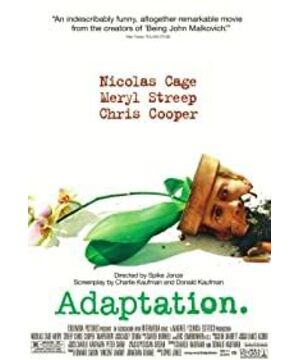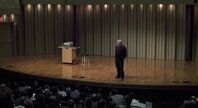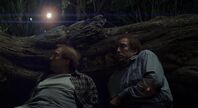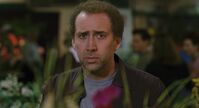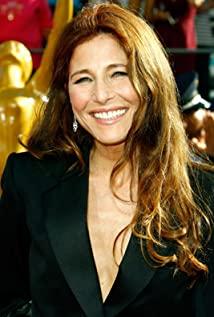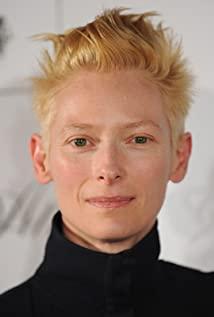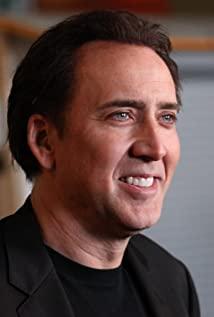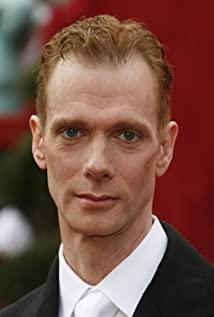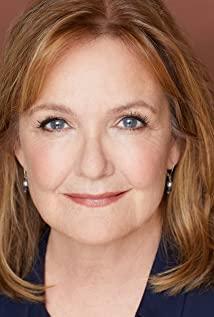He was a screenwriter, and no one knew him at the age of forty, as if he was an invisible man. All kinds of anxiety. He developed a historical lens, and a single cell has evolved a variety of people, including screenwriters who write, but he is nothing special, he is just a human being. He knew this sympathetically. The world is getting more and more complex, and the writers just want to reduce him to something he can manage. Music, writing, all those mayflies in the spirit world. He was happier, it would really be because of the hole in the question. He is eating himself, he is shy and timid. He is narcissistic. But also morbid. He couldn't give an answer, except to split himself. Two lines, one is that the screenwriter is thinking about how to adapt the novel. And his biggest contradiction is the struggle and wandering between his own superficial brother and the Hollywood camera. The other is the way of writing the novel, which was obtained by Aunt Mei following and interviewing the Orchid Thief all the way. Plot and antiplot? Independent expression and Hollywood? 1. If you want to do something new, stay away from the screenwriter teacher, the story is a journey into the unknown. 2. For example, go back to a topic, story, or point that interests you the most, and then think about it. For example, Wang Xiaobo will constantly ask himself what sex is. It's completely thematic. 3. "Story" says that characters must have desires, contradictions, and motives. He wondered if there would be none at all, the same kind as in real life. Do! You have no understanding of life, do you have no real life? I tell you, this is the real world, you know? If you want to add drama, the characters will change, and you will change yourself, you know? Guaranteed you can sell big. And the sense of meaninglessness that has to be generated comes from: the male screenwriter reads the dashing speeches of the orchid thief all day long, which are charming, aggressive, sexual, and philosophical. And the screenwriter is always cowardly, and he is always cowardly. For example, when it comes to the woman he loves, he is reserved and procrastinated. The Orchid Thief is the opposite of the screenwriter, sexy and ambitious. He wants to let the world know what he wants to do? Regardless, speak your words confidently and let others record them. He is full of enthusiasm for many things, unlimited and addicted. Once the enthusiasm for this matter dissipates, he will choose to forget it. Very decisive, almost ruthlessly forget. The younger brother of the male screenwriter always sits like a duck to water and does the same thing as him, no matter what he gets, effortlessly. Because they look exactly the same, you can't tell which is him or which is real. The exchange between the male writer and the waitress was also very interesting, Orchid, I like it. Really? um...the waitress was scared away. But then The male screenwriter's mind has already run wild, probably. And the waitress said casually, but for the male screenwriter, it was the beginning of one after another. This will make his hormones burst. Some people are bottomless. He is inclusive of everything. He looks at many things with sadness, and many people imagine their identities, from abstract to concrete. No one knew what he was really thinking. But he was screwed in. His younger brother's Hollywood success left him despairing. What he was so proud of that made him narcissistic and crazy was eroded. He didn't have the courage to try something new. And this is often the most important question he has to face in his screenwriting career. His belief and uncertainty stemmed from one simple thing, and the industry might not be able to accommodate a screenwriter like him. Stories nest stories, which in turn nest into inner stories. The real human part requires a certain kind of open spirit of his brother. To peep, to investigate, to find the hidden humanity, to understand a person's lies intuitively, his brother is sensitive. And my brother was intoxicated with his own social fear world and couldn't extricate himself. Later, Aunt Mei took nude photos, to Guilan, and then to the story about Guilan. All in order to lead him to surpass himself, and under the guidance of his younger brother, he still wants to go out and bravely break a certain reality. His world began to crumble and he began to question himself. Hollywood is awesome, the world is full of conflict, and I'm a guy who stays in his own circle and plays with narcissistic words. In the end, it was very clear that he fell into Hollywood's gu, and he wrote and wrote, and in the end, he was still a narcissistic self, the little screenwriter who pushed himself into a corner, and no one wanted to know about it. Then just kill me, in a Hollywood ending. I will have a tragic ending. he thought romantically. The most classic part of the show is at the end, you are what you love, not what other people love you like. In fact, his younger brother is the one who most avoids people's eyes, and he is very existential. And he can't. He cares about him very much, and he doesn't dare to give love, for fear of being ridiculed. That was his motive, and his brother was never afraid. The characters started to change, especially charlie, who started driving and running away like a Hollywood drama. But in the end, nothing is more sad than the death of your other half. It doesn't matter if there is talent or personality, the younger brother is dead after all. He finally had the courage to scold what he wanted to say. You miserable old bitch, you are fake, you are not real.
View more about Adaptation. reviews


